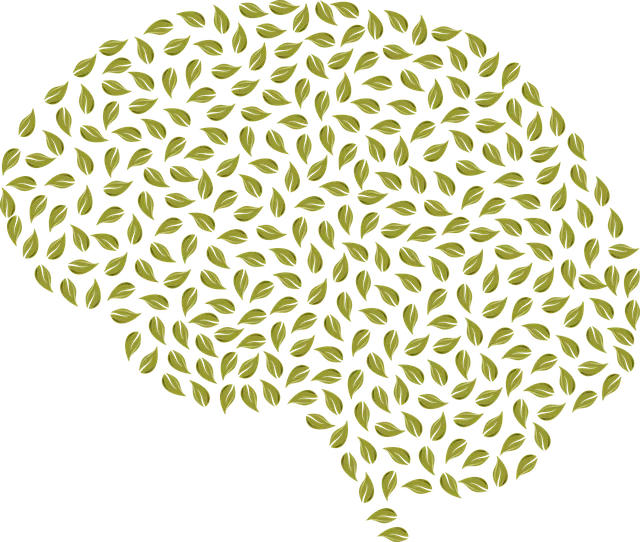Group facilitation at Englewood Kaiser mental health classes leverages techniques like Mindfulness Meditation, Communication Strategies, and Burnout Prevention to create safe, structured environments where individuals connect, share experiences, and learn coping mechanisms. This collaborative approach enhances mental wellness, builds resilience, and strengthens community bonds through active participation, emotional intelligence training, and open dialogue, fostering an inclusive, non-judgmental space for personal growth and overall well-being.
Mental wellness group facilitation is a powerful tool for fostering community, support, and healing. This comprehensive guide explores effective techniques for leading engaging and therapeutic sessions, inspired by the innovative programs offered by Englewood Kaiser mental health classes. From creating safe spaces to mastering communication strategies, discover how to facilitate meaningful connections and promote mental well-being among participants.
- Understanding Group Facilitation for Mental Wellness
- Engaging Participants: Techniques to Promote Active Participation
- Creating a Safe and Supportive Environment
- Effective Communication Strategies for Group Leaders
Understanding Group Facilitation for Mental Wellness

Group facilitation plays a pivotal role in enhancing mental wellness, especially within community settings like those offered by Englewood Kaiser mental health classes. These structured environments provide a safe space for individuals to connect, share experiences, and learn from one another. Facilitators, akin to guides, foster open communication and create an atmosphere of trust and empathy.
By incorporating techniques such as Mindfulness Meditation, Communication Strategies, and Burnout Prevention Strategies for Healthcare Providers, group facilitators can significantly impact participants’ mental health journeys. Such sessions encourage active participation, promote self-awareness, and teach valuable coping mechanisms. This collaborative approach not only benefits the individuals in the group but also contributes to building a supportive network, ultimately fostering resilience and overall well-being.
Engaging Participants: Techniques to Promote Active Participation

Facilitating engaging mental wellness group sessions is an art that requires a blend of skill and empathy. One of the key aspects to ensure success is encouraging active participation from all members, fostering a safe and inclusive environment at Englewood Kaiser mental health classes. Group dynamics can be complex, so facilitators must employ strategic techniques to keep participants invested and involved.
Interactive activities, such as icebreakers and group discussions, serve as powerful tools to spark conversations and build camaraderie. These methods not only break the ice but also allow members to share their experiences, fostering a sense of community. Facilitators can further enhance engagement by incorporating Mind Over Matter Principles, encouraging participants to explore their thoughts and emotions openly. Additionally, training in emotional intelligence enables professionals to recognize and respond to individual needs, tailoring activities to promote meaningful connections and personal growth, especially during risk assessment for mental health professionals.
Creating a Safe and Supportive Environment

Creating a safe and supportive environment is paramount when facilitating mental wellness groups, especially in settings like Englewood Kaiser mental health classes. This involves fostering an atmosphere where participants feel comfortable expressing their thoughts and emotions without fear of judgment or stigma. Techniques such as active listening, open-ended questions, and reflective practices help group members build empathy and understanding towards each other.
The Stress Management Workshops Organization recognizes the importance of a secure space to encourage participation in Self-Awareness Exercises that promote personal growth and resilience. By implementing Empathy Building Strategies, facilitators at Englewood Kaiser mental health classes aim to create a supportive network where individuals can learn from one another, build coping mechanisms, and ultimately enhance their overall well-being.
Effective Communication Strategies for Group Leaders

Effective communication is a cornerstone for successful group facilitation, especially in mental wellness settings like those offered by Englewood Kaiser mental health classes. Group leaders play a vital role in creating an environment where every member feels heard and understood. Utilizing open-ended questions encourages participants to share their experiences and insights, fostering a sense of community and mutual support. Active listening techniques, such as paraphrasing and summarizing, demonstrate engagement and validate individual perspectives.
Promoting healthy dialogue involves balancing structure with flexibility. Group leaders should guide discussions while allowing for organic exploration of topics related to Mental Health Awareness and Coping Skills Development. By cultivating Emotional Intelligence, facilitators can navigate sensitive subjects with empathy, ensuring that the group remains safe and productive. This approach enhances overall engagement and encourages members to build upon each other’s insights.
Group facilitation techniques play a pivotal role in enhancing mental wellness, as seen in the successful programs offered by Englewood Kaiser mental health classes. By fostering engaging environments and implementing effective communication strategies, facilitators can empower individuals to support one another through shared experiences. Through active participation and safe spaces, these techniques revolutionize mental healthcare, making it more accessible and beneficial for all.






